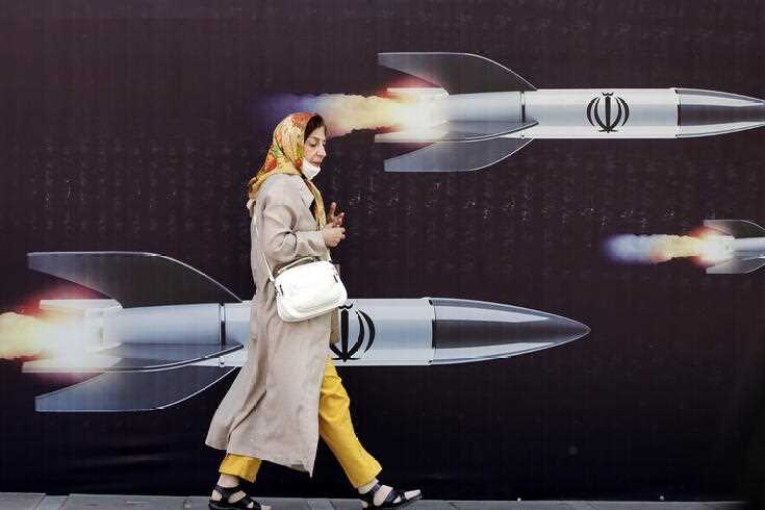Russia expels three diplomats as protests erupt over Alexei Navalny’s sentencing
Russia has expelled three diplomats – from Germany, Poland and Sweden – over their alleged participation in rallies supporting jailed Kremlin critic Alexei Navalny, the foreign ministry says.
The Russian opposition figure’s sentencing by a Moscow court to three-and-a-half years in a penal camp for a probation violation led to mass demonstrations across the country and criticism from leaders around the world.
The envoys from the Swedish and Polish consulates in St Petersburg and an employee of the German embassy in Moscow were found to have participated in the unauthorised protests on January 23 in support of Mr Navalny, the ministry said.

Riot police prepare for public reaction to Navalny’s jail sentence. Picture: Getty
It comes as the Russian doctor who treated Mr Navalny immediately after the poison attack last August “suddenly passed away” at the age of 56.
Dr Sergei Maximishin was the deputy chief physician for anaesthesiology and resuscitation in the Siberian city of Omsk and had worked at the hospital for 28 years.
The hospital did not give a cause of death but media reports said that he had suffered a cardiac arrest.
Russia, which has repeatedly accused the European Union of interfering in its internal affairs, declared the three diplomats “undesirables” and told them to leave the country immediately.
Such actions were incompatible with their status as diplomats, it said.
In response, Sweden said it “strongly rejects Russian claims that the diplomat took part in protests in Russia”.
“The Foreign Ministry considers this to be completely unfounded and we have conveyed this to Russia,” Swedish Foreign Ministry spokeswoman Linn Duvhammar said.

Protesters shout in front of the Bolshoi Theatre. Picture: Getty
The expulsions came as the EU’s highest-ranking diplomat Josep Borrell met Foreign Minister Sergei Lavrov and repeated the bloc’s call for Navalny’s release.
“I have conveyed to Minister Lavrov our deep concern and reiterated our appeal for (Navalny’s) release and the launch of an impartial investigation into his poisoning,” the EU foreign affairs chief said at a joint press conference in Moscow.
“We have to recognise that over the last years, our relations have been marked by fundamental differences and by a lack of trust,” Mr Borrell noted.
Alongside Mr Navanly’s arrest, the EU’s relationship with Russia has been under strain for years over the war in Ukraine and resulting sanctions.
“It’s true that these relations go through difficult times,” Mr Lavrov said.
“We hope that the European Union will opt for professional, constructive and pragmatic cooperation,” he told reporters at the occasionally tense press conference.

Alexei Navalny during a hearing to convert his suspended sentence of three and a half years into a real jail term. Picture: Getty
After appealing to the member states to choose dialogue, Mr Lavrov spoke of Europe’s “arrogance” with regards to the Navalny case and implied that it was hypocritical of the bloc to call out heavy-handed policing at protests or alleged rule of law infringements.
“We see many situations in Europe where courts are suspected of taking politically motivated decisions,” he said, pointing to Spain’s handling of the Catalonian referendum.
Mr Borrell’s visit comes before an EU foreign ministers meeting later this month where a joint reaction to developments in Russia is on the agenda.
EU leaders are also due to review their dealings with Russia at a March summit.
Mr Navalny, a prominent critic of Russian President Vladimir Putin, was sentenced earlier this week.
His lawyers expect him to serve two years and eight months in a penal camp and the remainder under house arrest.
He was detained when he decided to return to his home country in January after seeking treatment in Germany for an attack last August on Russian soil with the nerve agent Novichok, banned as a chemical weapon.








